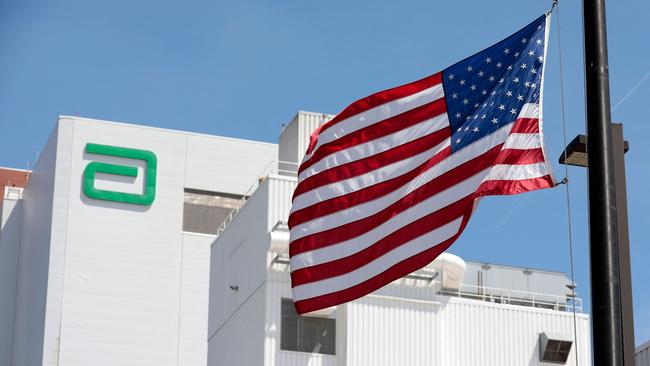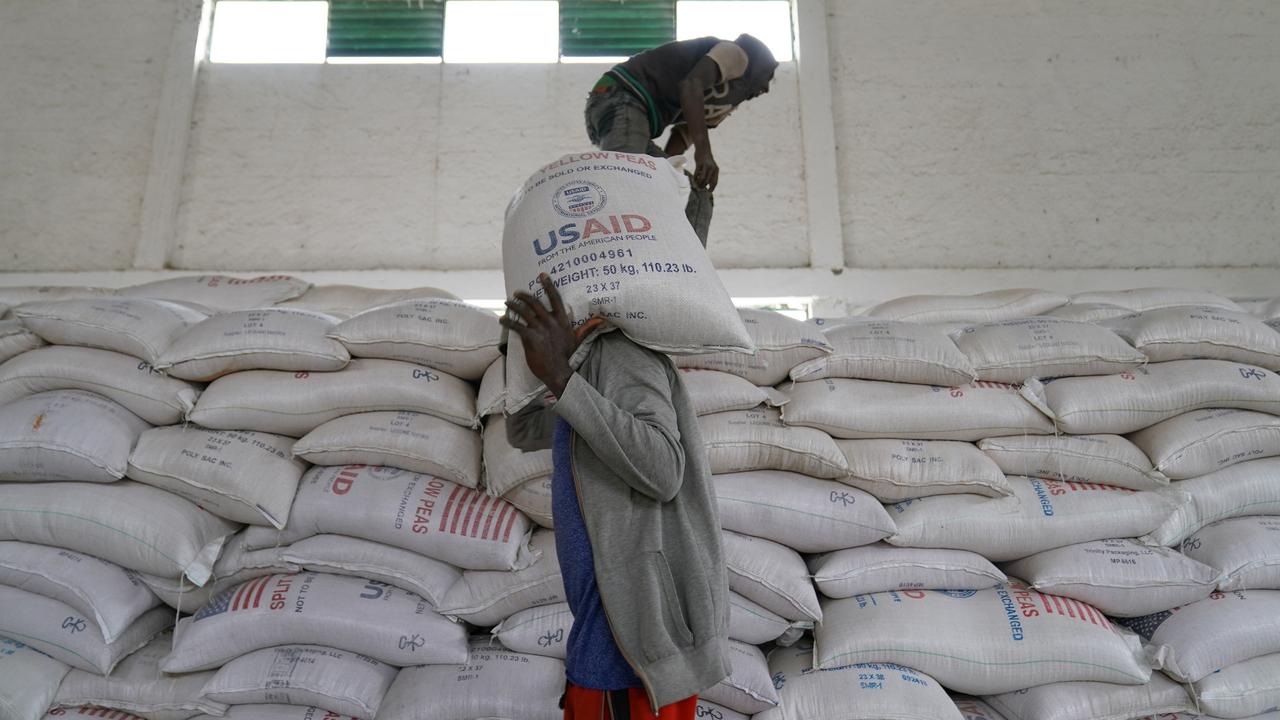FDA eases baby-formula import rules to boost supplies
International makers will need to apply with the agency to make shipments to US, and safety checks will follow.

US health regulators took steps to allow more foreign baby formula on American shelves, easing rules that had effectively prevented shipments from many overseas manufacturers.
The Food and Drug Administration on Monday said it encouraged the overseas manufacturers to apply to ship their formula to the US.
Government officials said the moves will allow more formula products to enter the US baby market, which is dominated by Abbott Laboratories, Reckitt Benckiser Group and Nestlé’s Gerber business.
It could be weeks, however, before the products come to store shelves in the US, an FDA official said. Manufacturers will first have to apply with the agency to be able to ship their products to the US, and then the agency will have to conduct a review to assure quality control and safety.
“FDA will prioritise review of applications that are most likely to be successful and will get the most formula to US shelves as quickly as possible,” White House press secretary Karine Jeane-Pierre said.
Also on Monday, Abbott said it had reached agreement with the FDA for the reopening of the Sturgis, Mich., plant where the company makes many formula products.
The consent decree between Abbott and the FDA, which must be ratified by a federal court, outlines the steps that the company must take for the agency to allow the reopening of the plant.
The company closed the plant in February, after the FDA found bacterial contamination.
“This is a major step toward reopening our Sturgis facility so we can ease the nationwide formula shortage. We look forward to working with the FDA to quickly and safely reopen the facility,” Abbott Chief Executive Robert Ford said.
The regulatory tweaks are part of a larger effort by the Biden administration to ease the shortage, a White House official said.
The administration, which has been facing pressure from parents, Democrats and Republicans to increase formula supplies, is encouraging companies to give priority to making ingredients and to speed up distributing products to retailers.
The White House has also been working with Abbott and the three other formula makers to identify transportation, logistical and supplier hurdles to increasing production of formula at their US and FDA-approved facilities, the administration official said.
Easing the import rules could add to formula supplies, according to supporters, by allowing manufacturers overseas that haven’t been able to ship their products to the US access to the market if they can meet the FDA’s adjusted requirements. It could also allow domestic manufacturers of formula destined for foreign shelves to sell their products in the US.
The changed guidelines are a temporary measure valid for the next 180 days, said Susan Mayne, who leads the FDA’s food-safety division.
Under the changed guidelines, Dr Mayne said, the FDA will have more flexibility to allow more overseas formula products into the US after making sure they are safe, nutritious and properly labelled.
“We are hopeful this call to the global market will be answered and that international businesses will rise to the occasion to assist in bolstering the supply of products that serve as the sole source of nutrition for many infants,” FDA Commissioner Robert Califf said.
The White House has asked embassies, retailers and manufacturers to help find companies that could ship formula to the US under the new FDA importation rules, Ms Jeane-Pierre said.
Abbott said it is already importing millions of cans of formula from an Ireland plant, and is prepared to import from other company facilities if possible.
Formula shortages have left parents scrambling, in some cases driving hours to find stores stocking the particular brands their infants need because of dietary restrictions.
The products have been in shortage for months partly because of supply-chain issues caused by the pandemic. The situation worsened after Abbott, one of the leading formula makers, recalled some products and shut down its plant in Sturgis, Mich., making Similac and other brands.
The FDA said it found a germ called cronobacter sakazakii, which can be deadly in infants, in the Sturgis plant, but not in products.
Abbott said there isn’t evidence linking its formula products to illnesses resulting in the hospitalisation of four infants, including two deaths. The Centers for Disease Control and Prevention also said the strains of bacteria at the plant didn’t match those involved in cases.
In a court complaint, federal prosecutors alleged Abbott didn’t comply with conditions and practices designed to ensure the quality and safety of baby formula, including steps to protect against contamination by bacteria such as cronobacter, the Justice Department said.
Under the terms, Abbott must hire an outside expert to help bring the plant into compliance with FDA rules, including developing plans for reducing the risk of bacterial contamination, according to the Justice Department.
Abbott said it could begin formula production again at its Sturgis plant within two weeks of the FDA signing off on the facility’s reopening, and it would take six to eight weeks for products to be available on store shelves.
Other formula makers, which have ramped up production recently, said the shortage could take months to resolve.
–Tarini Parti contributed to this article.
The Wall Street Journal


